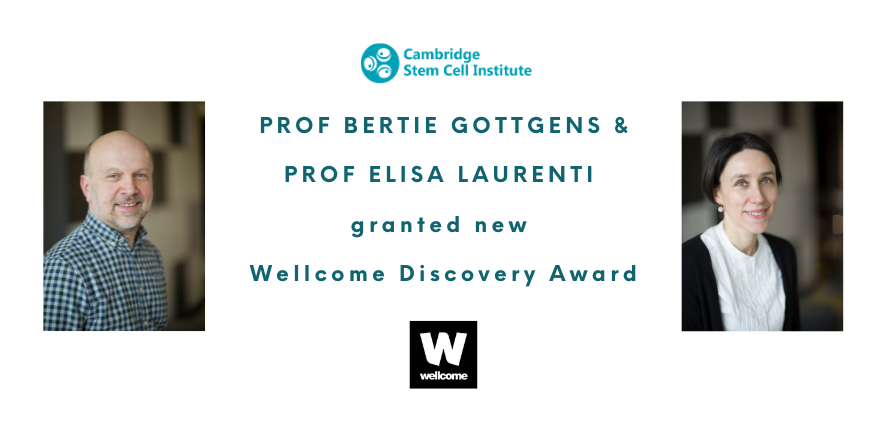
Submitted by Laura Puhl on Wed, 27/11/2024 - 11:33
The Wellcome Trust has recently announced that Professor Bertie Göttgens and Professor Elisa Laurenti have been granted a £3.75M Wellcome Discovery Award for their research, ‘Haematopoiesis across Scales, Species and Time: a Foundational Approach to Study Stem Cell Biology and Disease.’
Wellcome Discovery Awards provide funding for established researchers to pursue research that aims to ‘deliver significant shifts in understanding related to human life, health and wellbeing.’
This new project, proposed and led by Professor Göttgens and co-led by Professor Laurenti, is designed to reveal the dynamic system properties of haematopoiesis, investigating how blood stem cells maintain a healthy blood system. The research will integrate observations across different scales (molecular, cellular, and organ), different species (mouse, human), and different timescales (days to months). Beyond its relevance for normal blood development and leukaemia, the new multi-scale approach will be broadly applicable to study human organs and diseases, including new artificial intelligence-powered ways to infer biological processes where they cannot be directly studied in humans.
On being granted the award, Bertie Göttgens says,
‘I am hugely excited that Wellcome have bought into our shared vision to advance stem cell biology through a highly interdisciplinary approach bringing together cell biology, genomics and data science, which we will pursue together with key collaborators in Munich, Harvard and Cambridge. Our proposed research is also closely aligned with the recently funded Wellcome Discovery Research Platform for Tissue Scale Biology, which provides underpinning infrastructure to drive discovery and translational stem cell science across the molecular, cellular and tissue scales.’
Elisa Laurenti says,
“This is an incredible opportunity for us to leverage new experimental models and artificial intelligence to move the field towards a more quantitative understanding of how blood is made.”

